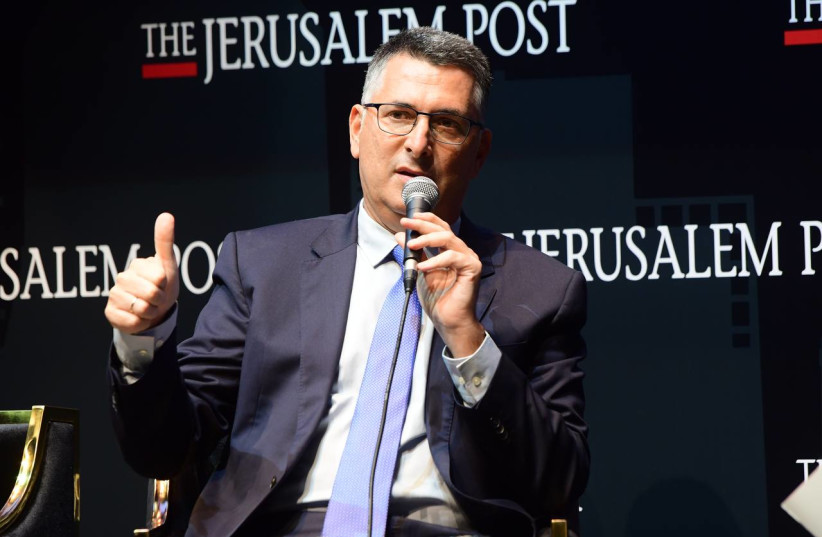The committee selecting the next attorney-general to replace Avichai Mandelblit on February 1 has named nine finalists.
On Wednesday the committee added six names: District Court Judge Michal Agmon-Gonen, lawyer Itai Ofir, Prof. Ariel Bendor, Dr. Aviad Bakshi, former Knesset chief legal adviser Eyal Yinon and Hebrew University of Jerusalem Rector Barak Medina.
Justice Minister Gideon Sa’ar had on December 13 recommended Deputy Attorney-General Raz Nizri, former top ministry official Gali Baharav-Miara, and Deputy Attorney-General for International Affairs Roy Schondorf as candidates, which could lead to them being favorites on the list.
Nizri has been a front-runner for replacing Mandelblit from the start, in part because of his experience as both Mandelblit’s and former attorney-general Yehuda Weinstein’s right-hand man.
Gali Baharav-Miara is a private-sector lawyer at Tadmor-Levy & Co., but previously was the head of Tel Aviv’s Civil Division. She continues to hold roles involved in public policy issues.

Schondorf was a surprise selection. He’s been the deputy attorney-general for international affairs since 2013, advising the government on public international law, including treaty negotiations and international litigation.
Before working at the Attorney-General’s Office, Schondorf was the director of the Department of Special International Affairs for the State Attorney’s Office since 2009, and was a senior official in the IDF International Law Division.
He has been responsible for building up the ministry’s international law units following the 2009 Goldstone Report, to handle the increasing threats of war crimes charges from the International Criminal Court and foreign country lawsuits.
Schondorf has also been involved in several important international negotiations on behalf of Israel, including with the ICC and in peace negotiations with Syria, Lebanon, Jordan and the Palestinians.
Mandelblit’s term as attorney-general expires on February 1, and Sa’ar has been careful in choosing the selection committee to get a new attorney-general who will support his objective of splitting the attorney-general position into two roles: a chief legal adviser and a chief prosecutor. Another reason for Nizri’s front-runner position is his personal support for dividing the attorney-general role.
Former conservative chief justice Asher Grunis chairs the committee, which also includes conservative New Hope MK Zvi Hauser and moderate conservative and former justice minister Dan Meridor.
Meridor was appointed after former justice minister Meir Sheetrit resigned due to an outcry over his being on the panel, in light of prior sexual harassment complaints, which he controversially resolved in a confidential settlement.
The other two members on the panel are Israel Bar Association representative Tami Olman and academic representative Ron Shapira. Olman is not known as being particularly conservative and has battled to defend the judiciary from attacks by former justice minister Amir Ohana.
The fact that the candidates lack criminal prosecution experience could help pave the way for Sa’ar’s goal of splitting the position.
It is unclear whether Sa’ar has the votes in the Knesset to split the position, since virtually all former attorneys-general, the Supreme Court and left-wing parties in the coalition are expected to oppose such a split.
Sa’ar did say in mid-December that he had the full support of Prime Minister Naftali Bennett.
In mid-December, Labor Party leader Merav Michaeli said she would continue to oppose any legislation for such a split. However, she said she would not comment on the candidates at this stage, which essentially means she is not exercising any public pressure on the issue.
If Sa’ar gets opposition support or cuts some broader deal giving left-wing parties some other victory they seek, he could pass his initiative.
Another possibility is that Sa’ar just requests that the incoming attorney-general give State Attorney Amit Aisman complete autonomy in the prosecutorial sphere, achieving his goal in practice without changing any law.
Some reports have also expressed concern that the committee may fail to reach a consensus, which could either necessitate extending Mandelblit’s tenure or appointing one of the current senior Justice Ministry officials as acting attorney-general.
Notably absent from the list was former military advocate-general Sharon Afek, whose appointment would have been seen as following in the footsteps of Mandelblit, who became attorney-general after having served in that position.
Michael Starr and Gil Hoffman contributed to this report.
